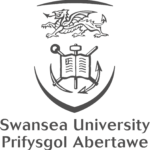
Deadline: 22nd January 2018
Start date: 1st October 2018
See the website for full details
Project details:
During the nineteenth century there were a series of developments that helped to shape ‘disability’ in its modern form. The administrative categorisation of the ‘defective’ poor in workhouses served to identify physical incapacity as a distinctive cause of poverty requiring particular responses, whereas the valorisation of ‘normal’ ranges of human size, strength and intelligence in eugenic thought marked out as deviant and inferior those who failed to meet these standards. Industrialisation, and subsequent struggles over reform (such as campaigns to limit child labour or restrict the length of the working day), promoted an abstract idea of the worker, whose capacities and needs were assumed to be the same as others.
Such developments have begun to attract attention, but considerably less is known about how people with impairments made sense of their experiences within evolving concepts of ‘disability’ and ‘able-bodiedness’. The aim of this PhD studentship is to explore ways in which contemporaries narrated physical difference using a variety of biographical and autobiographical writings. The nineteenth century is significant for a proliferation of texts that explored the lives of people with disabilities. Some, such as the autobiographical writings of Harriet Martineau or John Kitto, are relatively well-known, but many others such as James Wilson’s Biography of the Blind (1820) – arguably the first work of ‘disability history’ – have received very little attention from historians or literary scholars. Accounts of illness and disability abound in working class autobiographies, while pauper letters weave these themes into compelling narratives of need. Life histories of freak show performers, ‘eccentric’ biographies, newspaper obituaries, and new forms of investigative reporting characteristic of the ‘new journalism’ all shed light on experiences of physical and intellectual difference. Such texts employed a variety of rhetorical strategies for capturing the experiences of ‘disabled’ women and men, yet have not yet been researched systematically from a disability perspective.
The recipient of this PhD studentship will have the opportunity to determine the scope and direction of their research within the broad parameters of the project. Their work will examine how disability is constructed within particular cultural contexts and how these relate to social, religious and medical frameworks for understanding physical difference. Their work will examine critically how narratives of disability are shaped by – and in turn shape – gender, class and racial identities. As part of their project, the PhD student will work with the interdisciplinary supervisory team to develop a programme of public engagement exploring life writing as a tool for promoting health and wellbeing, while also raising awareness of experiences of disability in modern Wales. This may include producing a public engagement blog that uses historical evidence to engage in dialogue with disabled people’s experiences in the present, and other public-facing activities. The supervisors, who won a Research and Innovation Award in 2016 for their work on the exhibition ‘From Pithead to Sickbed and Beyond: the Buried History of Disability in the Coal Industry before the NHS’, will bring their experience in leading disability projects to provide mentoring for the recipient of the studentship to build a public profile for their work and develop its impact potential. The project falls under the auspices of CREW, Centre for Research into the English Literature and Language of Wales, and the cross-campus Research Group for Health, History and Culture (RGHHC), which will provide supportive research clusters. Since its founding in 2010, members of RGHHC have secured grants totalling £1.5 million for individual or collaborative projects. Swansea University is an internationally renowned centre of excellence in disability history. Recent funded projects include ‘Disability and Industrial Society 1780-1880’ (Wellcome Trust) http://www.dis-ind-soc.org.uk/en/index.htm and an AHRC Collaborative Doctoral Scholarship on ‘Correcting Vision in Nineteenth-Century Britain’ (with the Science Museum).
Supervisors / Academic Contacts: Professor David Turner and Professor Kirsti Bohata

